Ahead of the free-agency shopping frenzy beginning on July 1, we’re surveying the landscape and outlining the unique situation in which every team finds itself. That includes the key pending unrestricted and restricted free agents and the team’s current cap space, along with the moves I’d make if I were sitting in the GM’s chair. We’ve already looked at the Atlantic, and this edition focuses on the eight teams in the Metropolitan.
Note: All contract information cited here is courtesy of Cap Friendly, and all underlying numbers are provided by one of Corsica, Natural Stat Trick or Evolving Wild.
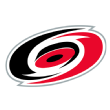
Key players hitting UFA: G Petr Mrazek, G Curtis McElhinney, W Justin Williams, W Micheal Ferland, C/W Greg McKegg
Key players hitting RFA: C/W Sebastian Aho, W Brock McGinn, D Haydn Fleury, G Anton Forsberg, G Alex Nedeljkovic
Cap space: $24.70 million
The moves I’d make as GM: When it comes to the Hurricanes, the “space available” figure above is just a technicality, because they’re a team that operates around an internal budget which is presumably a fair bit below the actual salary cap ceiling.
We were reminded yet again of this sad reality over the past couple of days, when they made a pair of moves that ultimately resulted in a net neutral cost from a dollars coming in versus going out perspective. After essentially buying a first-round pick from the Leafs in exchange for buying out Patrick Marleau‘s contract, they shipped off Calvin de Haan‘s contract along with an interesting prospect in Aleksi Saarela for what amounts to spare parts.
Sebastian Aho blossomed into a legitimate superstar before our eyes this season, and he’ll easily become the Hurricanes’ highest-paid skater, though that’s a low bar to clear considering no one is currently making north of $6 million on the team (once Marleau is officially bought out). Ensuring that he’s in a Hurricanes uniform for the entirety of his prime years is the first priority this summer, and then after that we’ll see how frisky the team is willing to get.
There was some thought that the de Haan trade signaled that the team opening up extra spending cash to go big-game hunting in free agency, although it’s just as likely that they didn’t want to spend $4.55 million per season on a third-pairing defenseman. He’s more than that in a vacuum, but Carolina’s strength is on the blue line, where they not only have Jaccob Slavin, Brett Pesce, Dougie Hamilton and Justin Faulk eating big minutes, but also top prospects like Haydn Fleury and Jake Bean looking like they’re ready to compete for regular NHL minutes too.
If the Hurricanes are looking to deal from a position of strength and upgrade their forwards, it would make sense to deal Faulk while his value is still high after a strong postseason. He’s an unrestricted free agent after this season, and considering how plodding a skater he already is, paying him big money into his 30s is an awfully risky proposition. His strength is his big booming shot from the point, but it was more of a curse than a blessing for the Hurricanes’ power play last season because of how much they relied upon it. Not only was their formation too predictable, but it was far too perimeter-based and centered around low-probability shots. They’d likely be better off just giving those minutes to Hamilton anyway, which means that trading Faulk to a team that is desperate for defensemen and covets his skill set becomes an enticing idea to entertain.
With Martin Necas presumably stepping up and giving the Hurricanes another scoring center, the trickle-down effect bumps Jordan Staal to a defensively oriented gig that’s far more suitable for his skill set, allowing everything to slide into its proper place. Potentially losing Justin Williams and everything he provided the team both on and off the ice hurts, but they should be able to find useful wingers for relatively cheap that can come in and fit in with the relentlessly dizzying pace at which they’d prefer to play. Andrei Svechnikov taking a leap in Year 2 would go a long way toward providing the team with some needed secondary scoring, which seems like a perfectly realistic expectation given the talent he flashed in abundance last season.
The biggest question is in net, where they finally got good goaltending from the unlikeliest of pairs between Curtis McElhinney and Petr Mrazek. While “slightly above league average” may not seem like anything to write home about, the Hurricanes had been on a hellishly abysmal run in goaltending the previous four seasons:
With both guys up for new contracts, it’ll be fascinating to see how the Hurricanes play things. They’re a franchise that likely won’t want to play for career seasons, particularly at this position, which means that they could possibly be looking elsewhere for the next versions of those two that are currently undervalued. Mrazek is obviously the more interesting of the two because of his age and the run he went on down to stretch to carry the team into the postseason, but considering that he took a discount deal last summer to prove himself and rebuild his value, it’s hard to see him not wanting to cash in somewhere else now.
Whether it’s Alex Nedeljkovic coming up from the AHL and being given his first real extended look, Anton Forsberg being retained after coming back in the de Haan trade, or some other free agent netminder, you don’t have to tell the Hurricanes about the importance of reliable goaltending after all they’ve been through at the position over the years.
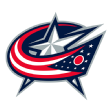
Key players hitting UFA: W Artemi Panarin, G Sergei Bobrovsky, C Matt Duchene, C/W Ryan Dzingel, D Adam McQuaid
Key players hitting RFA: D Zach Werenski, D Ryan Murray, G Joonas Korpisalo
Cap space: $29.52 million
The moves I’d make as GM: Once Columbus chose to throw caution to the wind and go all-in at last year’s trade deadline in an attempt to finally get over the postseason hump, there was a lot of concern voiced about the potential ramifications of their decision to do so without securing a real safety net or contingency plan afterward. Part of it had to do with the fact that it was such a unique situation, which completely went counter to the NHL’s customary norms of conservatism and half measures.
But as strange as it is to say about a team that’s about to lose its most prolific scorer, a two-time Vezina Trophy winner and a 70-point player — that Nashville just presumably moved P.K. Subban for spare parts to try to sign — for essentially nothing, the future outlook for the Blue Jackets just might be fine after all.
The loss of Panarin will certainly be felt, because the Blue Jackets don’t have a pure talent of his caliber through which to consistently run the offense. Having him on the ice made life easier for players like Cam Atkinson and Pierre-Luc Dubois, because of all the extra space on the ice they were afforded with all the attention opposing defenses paid to Panarin.
While the Blue Jackets understandably won’t be able to replace his production with any one player, they’re uniquely positioned to survive the loss through the sheer volume of forward depth that remains. In Atkinson (25), Dubois (20), Josh Anderson (20), Oliver Bjorkstrand (19), and Nick Foligno (15), they had five of the top 80 5-on-5 goal scorers last season. The openings in the lineup up front also provide an opportunity for exciting prospects like Alexandre Texier (who tore up the Finnish pro league and didn’t look out of place at all in his late-season cup of coffee in North America) and Emil Bemstrom (who led the Swedish Hockey League in goal-scoring as a teenager) to step in and make an impact immediately as well.
Sergei Bobrovsky was arguably the best goalie in the league in totality during his Blue Jackets seasons, but not having to pick up the expensive tab for the downswing of his 30s could be a blessing in disguise for Columbus. Right now, it looks like they’ll go with some combination of Elvis Merzlikins, Joonas Korpisalo and Free Agent X in net, which at least has the potential to be a decent group for a fraction of the cost.
Columbus may have put a bunch of their eggs into last year’s basket, but it’s not like they’ll start at square one now. They have two top-pairing defensemen in their early 20s, a 21-year-old top center, a deep roster of interesting talent, a loaded prospect pipeline, and more spending cash than they know what to do with. It’s a minor setback in the present, but the Blue Jackets could be positioned to reload on the fly here.
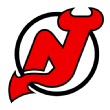
Key players hitting UFA: W Drew Stafford, W Kenny Agostino
Key players hitting RFA: D Will Butcher, W Stefan Noesen, D Mirco Mueller, D Connor Carrick
Cap space: $25.77 million
The moves I’d make as GM: The Devils are coming off a monster weekend for their franchise, having added two big-name stars to a roster that was in desperate need of game-changing talent wherever it could get it.
While they were lucky to have won the lottery and gotten the chance to draft Jack Hughes first overall, they fully earned their opportunity to swoop in and steal P.K. Subban from a vulnerable Predators team looking to clear money ahead of free agency. Considering the measly acquisition cost the Devils paid, any number of teams out there could’ve theoretically matched or provided a superior offer to theirs, but very few possessed New Jersey’s financial flexibility that allowed them to fully absorb Subban’s $9 million cap hit without blinking an eye.
Assets come in various shapes and sizes in this league, and cap space is one of them. There will always be teams that find themselves in a bind, and there will always be value in being the team that’s sitting around waiting to throw them a life line — with interest attached. Even after taking on the third highest paid defenseman in the league, the Devils still boast the fourth most spending power heading into free agency, making them a team to watch.
A big year looms for the Devils, as they try to convince Taylor Hall to stick around and sign a contract that’ll presumably take him right through the remainder of his most productive seasons. Getting Subban and Hughes is an excellent first step, but there’s more work to be done. If they want to put the latter in a position to succeed in his first spin around the league, the Devils could still realistically use another scoring winger (or two) to help arm Hughes with personnel that can take advantage of his expert passing, assuming he’s not playing alongside Hall on the top line right out of the gate.
The biggest winner of all this talent infusion is head coach John Hynes, who endured a lean season in 2018-19 as the team battled through a litany of injuries and a talent deficit on a nightly basis. It goes against the ingrained image of the defensively oriented trapping Devils of the 90s, but New Jersey under Hynes would ideally like to play with pace and get up and down the ice with the best of them. They couldn’t really do it last season because they lacked the firepower to get away with it, but they should be fun to watch after this summer’s additions (and a presumably healthy Hall).
One final note: The Devils recently hired analyst Matt Cane, whose most prominent work online revolved around projecting free-agent contracts on the open market. That seems like a useful tool to have around this summer, with plenty of interesting names available and more resources at your disposal than your competition.
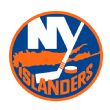
Key players hitting UFA: C/W Anders Lee, G Robin Lehner, C/W Valtteri Filppula, W Tom Kuhnhackl
Key players hitting RFA: W Anthony Beauvillier, W Michael Dal Colle, C/W Josh Ho-Sang
Cap space: $20.75 million
The moves I’d make as GM: The Islanders have already taken care of some housekeeping business, inking Brock Nelson and Jordan Eberle to long-term deals and preventing them from testing the open market. The Nelson deal seemed a bit rich at first blush, but he scored 25 goals last season and after what Kevin Hayes got, it seems far more defensible. The Eberle deal was quite team-friendly, even if he was coming off a poorly timed down season. He bounced back from that with a particularly strong playoff performance, and has a long track record of scoring in the mid-20s in goals, which makes you think that he could’ve probably gotten more from someone else if he’d waited for July 1.
The Islanders had no choice but to bring back both guys, because it’s not like they’re bursting at the seams with scoring threats. By that logic, it would make sense that Anders Lee would be back as well, though it’s possible his demands are too high (and possibly prohibitive for a 29-year-old that isn’t exactly fleet of foot at this age).
While the team could use a talent infusion wherever it could get it, a good start would be providing Mathew Barzal with some viable wingers. It’s mind-boggling to look at his list of linemates last season and see how much time was wasted playing alongside the Tom Kuhnhackl, Andrew Ladd and Leo Komarov of the world.
That’s simply not good enough, and it’s doing a disservice to both him and the team to not have him flying around with shooters that can consistently take advantage of his puck wizardry. There’s few players that have the combination of vision, creativity and touch that he possesses, and the Islanders would do well to take full advantage of that by surrounding him with the right complementary players. It would be absolutely scintillating watching him play with Panarin, but at this point I’d settle for Gustav Nyquist, Mats Zuccarello, Ryan Dzingel or any other gifted winger that’s available.
The other question the Islanders have to answer is how much they want to invest in Robin Lehner’s ridiculously dominant 2018-19 campaign. Not only was he great on the ice, but everything he did off of it, culminating in a tremendous speech at the NHL Awards when he was accepting the Masterton Award that gives this entire story a feel that’s beyond just hockey. He’s also younger than you’d think because of how long he’s been in the league, turning 28 this summer. It’s still risky investing heavy resources in goalies, and there’s a case to be made that Barry Trotz’s system is just as responsible for all of the success the team enjoyed defensively last season. But, it seems logical for all parties to continue the relationship at least in the short term.
Before the Islanders do anything else this summer, it’s imperative for them to critically evaluate their performance last season, distinguish between what was real and wasn’t, what the driving forces were, and then proceed accordingly.
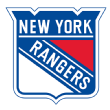
Key players hitting UFA: None
Key players hitting RFA: D Jacob Trouba, W Pavel Buchnevich, W Brendan Lemieux, D Tony DeAngelo
Cap space: $17.54 million
The moves I’d make as GM: Right now, the Rangers have a devil on one shoulder telling them to fast-track the rebuild and go make a splash by splurging on a big name on the free-agent market. Meanwhile, the angel on their other shoulder tells them to continue hoarding future assets and build something special for the long haul.
Normally we’d think that the market they’re in and the history of the franchise would make them particularly susceptible to giving in to the former’s urges, but they’ve done such a masterful job of rebuilding over the past 18 months that there’s clearly a coherent plan in place that they’ve stuck to throughout. While it would be exciting for them to land a big name that sells jerseys and generates fan interest, there would be something even more satisfying about seeing them properly execute this full rebuild from start to finish so expertly.
Looking at the projected roster, one area the Rangers could certainly use some immediate help in is down the middle, where they’re particularly thin for the time being beyond Mika Zibanejad until Filip Chytil is ready to step into the role. With Kaapo Kakko and Vitali Kravtsov joining the team, New York is flush with tantalizing young wing talent that would greatly benefit from playing next to someone that can be relied upon the get them the puck and cover for them defensively. The issue is that it’s difficult to find a center in the free-agent class who would tangibly move the needle without costing a fortune, and it doesn’t make much sense for the Rangers to be tying up significant funds in players who don’t align with the timeline of the majority of their roster.
The one exception to everything written above would be Artemi Panarin, whose unique résumé we already outlined in-depth when discussing why the Panthers would be interested. He’s 28, but he has minimal mileage on his body and figures to age gracefully in the coming years. He’s also the rare winger that transcends the position, and even though he’s not playing down the middle you can still play through him by letting the offense flow through his stick.
The other thing the Rangers could use is a defenseman, but with Trouba and Adam Fox now coming in, and recent draft picks like K’Andre Miller and Nils Lundkvist on the way eventually, they shouldn’t concern themselves too much with trying to fill those spots on the depth chart immediately. They’ve done such an admirable job of accumulating talent on all fronts since starting this rebuild, that they should now sit back and allow it all to coalesce, seeing how it all fits together first. There may be growing pains and it may be a while before it translates into consistent wins, but there’s so much to look forward to with this time and they promise to be near the very top of next year’s watchability rankings.

Key players hitting UFA: G Cam Talbot, G Brian Elliott, G Michal Neuvirth
Key players hitting RFA: D Ivan Provorov, W Travis Konecny, C Scott Laughton
Cap space: $17.15 million
The moves I’d make as GM: If we were having this discussion as recently as two weeks ago, it would’ve had a much different tenor to it. After years of careful planning and diligent saving by Ron Hextall to dig the franchise out of one of the worst financial situations in the league, the Flyers we know and love are back to their free spending old ways under Chuck Fletcher. They couldn’t help themselves, getting out on the market and making their chess moves before we even knew what the salary-cap details were going to be for the coming season.
In a vacuum, there’s no doubt they’re a better team on paper now than they were at the end of last season. Kevin Hayes is an excellent playmaker, and fills arguably the team’s biggest hole on the depth chart as a second center behind Sean Couturier. His insertion into the lineup not only gives them the luxury of keeping Claude Giroux on the wing (which they justifiably prefer), but also allows Nolan Patrick and some of their other younger options to develop more freely without mounds of pressure and expectations. Matt Niskanen and Justin Braun are both on the wrong side of 30 and coming off of dreadful showings last season, but the Flyers are betting that both players — who were legitimately excellent defenders not too long ago — will bounce back under softer minutes.
Considering the advancing ages of core players like Giroux and Jakub Voracek, it makes a fair bit of sense for the Flyers to push their chips in with this current group while they still can. That’s especially the case as a divide between old and new forms in the Metro Division, with the incumbents in Pittsburgh and Washington showing signs of vulnerability while the next wave in New York and New Jersey still needs more time to take shape fully.
The issue is that it’s tough not to be underwhelmed by how they chose to make their move over the past couple weeks. Considering the additional $14.35 million commitment to next season’s cap that they made in those three acquisitions, they didn’t improve their outlook nearly as much as they should’ve with that money.
Disappointment about what could’ve been aside, there’s still plenty to like about this roster as currently constructed. There’s a nice blend of established stars in their prime and realistically ascending youth sprinkled throughout the lineup. Assuming they can refrain from overreacting about admittedly down seasons from Shayne Gostisbehere and Ivan Provorov, most of the heavy lifting is already done.
It’s somewhat fitting that their only major unrestricted free agents are all goaltenders, because that was their ultimate undoing last season. The Flyers cycled through an astonishing number of netminders last season, working through seven different options before finally giving Carter Hart his belated shot. By that time, the damage had been done, but the good news is that Hart acquitted himself well enough in his first look that there’s reason for legitimate optimism about him being the long-term solution in net. In his 30 starts, he posted a .917 save percentage and plus-7 goals saved above average, compared to the abysmal .890 save percentage the seven others combined for in their 52 starts.
At this point, less is more for the Flyers. They can go and get a veteran backup to provide occasional relief for Hart if they don’t trust Alex Lyon to do it (he had a .916 save percentage in the AHL last season), and they need to take care of the remaining restricted free agents listed above. After that, Fletcher should be encouraged to take a company-mandated vacation for the rest of the summer.

Key players hitting UFA: C/W Matt Cullen
Key players hitting RFA: D Marcus Pettersson, C/W Zach Aston-Reese, C/W Teddy Blueger
Cap space: $3.89 million
The moves I’d make as GM: The Penguins are obviously one of the teams most directly impacted by the cap ceiling for next season coming in lower than expected, considering how tight up against it they already are.
The Olli Maatta trade was the first domino to fall in their pursuit of more flexibility, and it was a smart one. They took advantage of Chicago’s desperate need for defensemen, turning a player whose name and lingering draft pedigree largely outweigh his present day utility into $3 million in essential cap space and a useful forward (Dominik Kahun) who is cheap and fits seamlessly into how they want to play under Mike Sullivan.
Pittsburgh needs more small victories like that, because the past calendar year or so has not been kind to Jim Rutherford’s résumé. It’s almost like their defeat to the Capitals in the 2018 postseason where Tom Wilson was running wild and imposing his will broke them as much psychologically as it did physically, completely pushing them off the path that had made them so successful up until that point. Most of the moves the Penguins made after that reeked of a desire to overcompensate with size and toughness, which ran completely counter to the speed and skill approach that won them back-to-back Stanley Cups.
In that misguided pursuit, they somehow tied up north of $11 million in essential cap space in Erik Gudbranson, Jack Johnson and Nick Bjugstad, all of whom make absolutely zero sense on this roster and in this system. That’s partly why they at least need to entertain trading Phil Kessel this summer. Not because of his attitude or personality or any other off-ice intangible reason cited, but because he’s one of their very few non-essential trade chips who could actually garner a return that helps improve the team. If they can parlay his contract into a number of other assets, while clearing some money off the books and regaining some semblance of flexibility, it’s something they need to at least consider.
Beyond that, there isn’t much the Penguins can do right now beyond hoping and praying that Sidney Crosby and Evgeni Malkin‘s greatness can overcome all of the hurdles placed in front of them. It’s obviously not ideal, but considering the magic we’ve seen them perform over the years, it’s also not the worst thing in the world to be banking on either.

Key players hitting UFA: W Brett Connolly, W Devante Smith-Pelly,
Key players hitting RFA: W Jakub Vrana, W Andre Burakovsky, D Christian Djoos, C/W Chandler Stephenson
Cap space: $9.24 million
The moves I’d make as GM: Unlike last summer, when the Capitals had to make a big decision about what to do with John Carlson‘s impending free-agent status, there isn’t really much tinkering for them to do this year except on the margins. Connolly presumably priced himself out of Washington after scoring 22 goals last season, but if any team can find a way to internally cover for that loss in that specific department it’s this one.
Caps GM Brian MacLellan certainly didn’t procrastinate this offseason, getting most of his affairs in order already by signing Carl Hagelin and getting ready to roll things back again with the same core group of players from last season. Because of the nature of their roster construction and how much of the cap is allocated to the top players, their biggest improvement is going to have to come from the internal improvements of players like Vrana and Burakovsky.
While it’s unclear at this point if it’s ever going to happen for the latter after all of the promise he’s flashed in the past, the Capitals are almost pot-committed to seeing it through with Burakovsky. The talent is undeniable, and at 25, he still presents a higher offensive ceiling for them than anyone else they’d reasonably get at a similar price point (not to mention the fear that he’d go somewhere else on the cheap and make them look silly by finally delivering on all of that vast potential).
The former is the one worth keying in on here of the two, because he really ascended in 2018-19, and now looks like he’s got even more room to grow. In an ironic way, their decision to not use Vrana nearly enough last season may actually wind up being to their long-term benefit, saving them a couple extra bucks on his next contract. We know that raw volume of stats counts much more than context when it comes to these negotiations, which will help suppress his figure as a restricted free agent. The fact that he had 24 goals and 47 points despite playing around 14 minutes per night without sniffing the top power play is quite impressive. He was tied for the 17th most goals at 5-on-5 with Steven Stamkos and Matt Duchene, and 54th in 5-on-5 points with Blake Wheeler and Evgeni Malkin. On a per-minute basis, those league ranks jump up to 14th and 39th respectively.
For a team like the Capitals that’s relatively capped out and only has so many avenues for getting better, the best option may very well be trying to get more out of the young players they already have like Vrana and Burakovsky by feeding them more opportunities and betting on their continued improvement.
